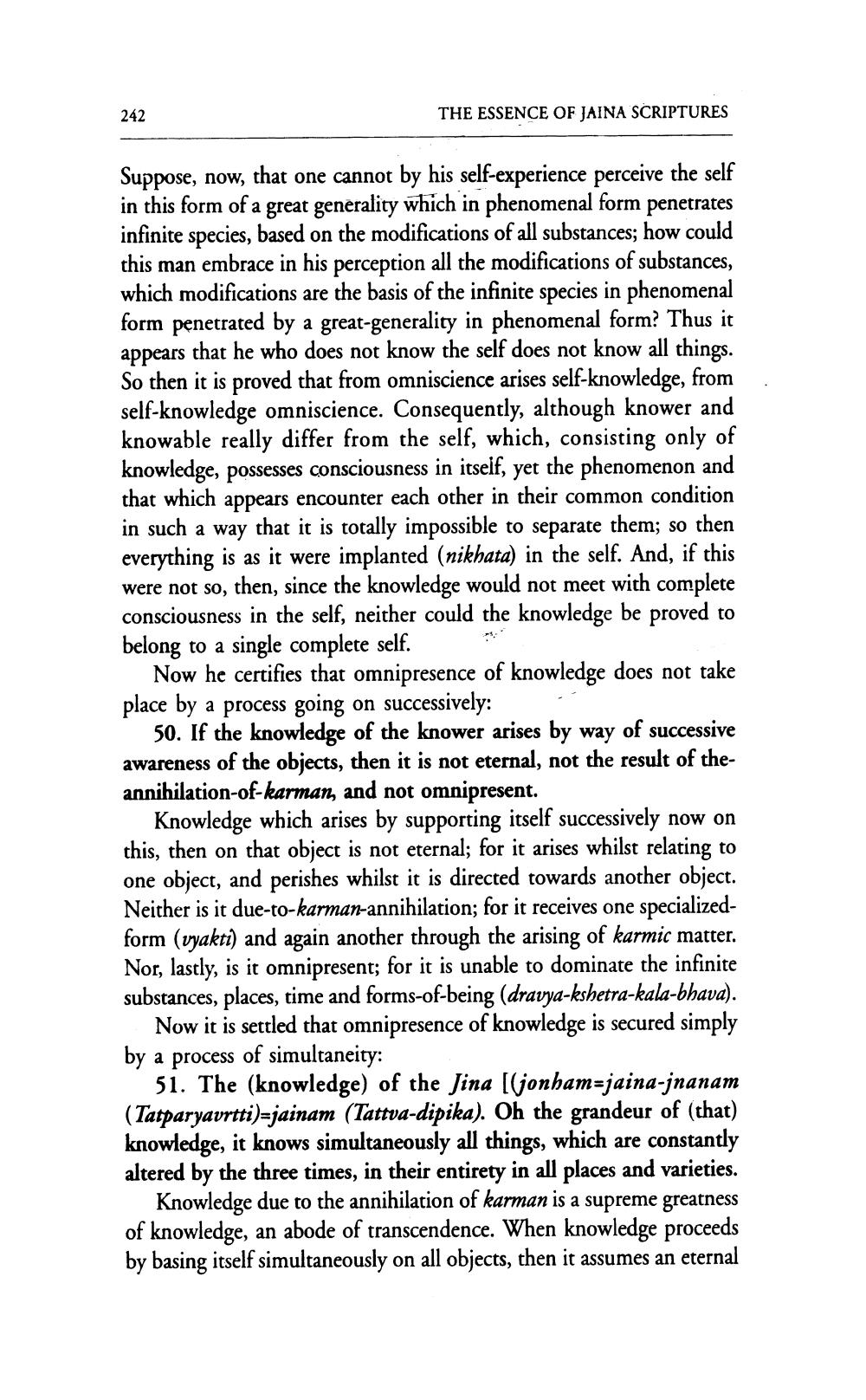________________
242
THE ESSENCE OF JAINA SCRIPTURES
Suppose, now, that one cannot by his self-experience perceive the self in this form of a great generality which in phenomenal form penetrates infinite species, based on the modifications of all substances; how could this man embrace in his perception all the modifications of substances, which modifications are the basis of the infinite species in phenomenal form penetrated by a great-generality in phenomenal form? Thus it appears that he who does not know the self does not know all things. So then it is proved that from omniscience arises self-knowledge, from self-knowledge omniscience. Consequently, although knower and knowable really differ from the self, which, consisting only of knowledge, possesses consciousness in itself, yet the phenomenon and that which appears encounter each other in their common condition in such a way that it is totally impossible to separate them; so then everything is as it were implanted (nikhata) in the self. And, if this were not so, then, since the knowledge would not meet with complete consciousness in the self, neither could the knowledge be proved to belong to a single complete self.
Now he certifies that omnipresence of knowledge does not take place by a process going on successively: .
50. If the knowledge of the knower arises by way of successive awareness of the objects, then it is not eternal, not the result of theannihilation-of-karman, and not omnipresent.
Knowledge which arises by supporting itself successively now on this, then on that object is not eternal; for it arises whilst relating to one object, and perishes whilst it is directed towards another object. Neither is it due-to-karman-annihilation; for it receives one specializedform (vyakti) and again another through the arising of karmic matter. Nor, lastly, is it omnipresent; for it is unable to dominate the infinite substances, places, time and forms-of-being (dravya-kshetra-kala-bhava).
Now it is settled that omnipresence of knowledge is secured simply by a process of simultaneity:
51. The (knowledge) of the Jina [(jonham=jaina-jnanam (Tatparyavrtti)=jainam (Tattva-dipika). On the grandeur of (that) knowledge, it knows simultaneously all things, which are constantly altered by the three times, in their entirety in all places and varieties.
Knowledge due to the annihilation of karman is a supreme greatness of knowledge, an abode of transcendence. When knowledge proceeds by basing itself simultaneously on all objects, then it assumes an eternal




